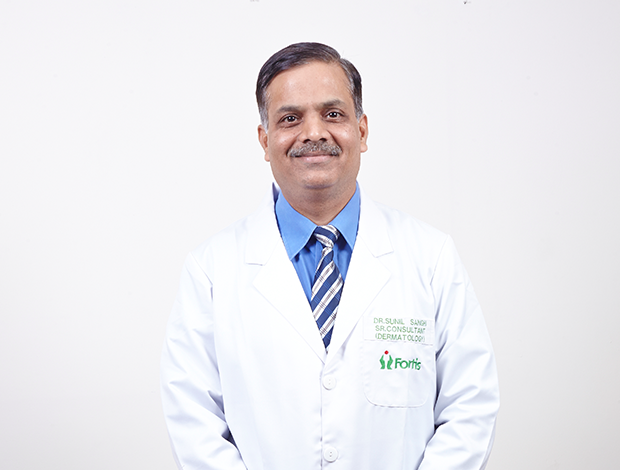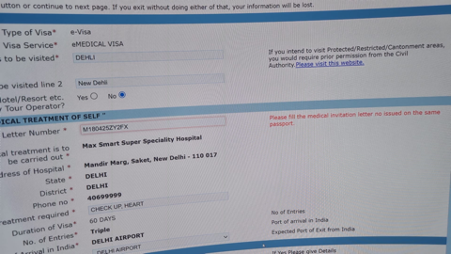About The Doctor
Dr. Sunil Sanghi is a gold medalist from prestigious Armed Forces Medical College with vast experience of 20 years in Dermatology. He joined Fortis group of hospitals after taking premature retirement from AFMC as Associate Professor. He is on editorial board of Indian Journal of Dermatologists, Venereologists & Leprologists and reviewer of many index journals. He has written 18 research papers. He has delivered more than 40 guest lectures. He is an expert in pediatric dermatology, psoriasis, cosmetology and Phototherapy.
Specialization
- Pediatric Dermatology
- Phototherapy
- Chemical peeling and cosmetology.
- Psoriasis and vitiligo
Awards
Frequently Asked Questions About Dermatology
When Should You Consult a Dermatologist?
If you are facing any skin or hair problems and you want an expert’s advice, get in touch with a dermatologist.
A dermatologist or a skin specialist will check your skin carefully for warning signs of any skin disorders or concerns, including skin cancer.
If you are concerned about your skin and want to get reliable advice from trusted experts, Apollo 24|7’s website or app is the perfect place for you to find the best dermatologist online.
Signs or symptoms for which dermatologists can offer help are listed below.
- Acne
- Skin rashes
- Moles and warts
- Skin irritation
- Signs of ageing like sagging skin, wrinkles, or sun damage
- Dandruff
- Varicose veins
- Hair fall or hair damage
- Itchy skin
- Scaly and flaky skin
- Skin discolouration or blemishes
- Fingernail issues
Roles and Responsibilities of a Dermatologist
The roles and responsibilities of a dermatologist include:
- Cosmetic Conditions: a dermatologist may treat skin conditions that affect your appearance. It involves dark spots, hair loss, and wrinkles. Many dermatologists are experts in conducting cosmetic treatments as well, this includes laser hair removal, fillers, and chemical peels.
- A dermatologist diagnoses and treats various conditions like acne, plaque psoriasis, and rosacea. A dermatologist may check for symptoms of other health issues from the condition of your skin. For instance, dry and itchy skin may specify some medical conditions related to the kidneys.
- Surgery: many dermatologists conduct minor surgeries like removing warts or moles and performing skin biopsies. Other dermatologists are trained in extensive surgeries. This process may involve the removal of skin tissue that shows signs of skin cancer and/or benign cysts.
Can I go to a Dermatalogist for a hair transplant?
Yes, you can go to a dermatologist to do a hair transplant. Dermatologists are specialists in conditions affecting the hair, skin, nails, and mucous membranes. ”
Is there any difference between a dermatologist and cosmetologist?
A dermatologist and cosmetologist are very different in terms of their training and educational qualifications. While a dermatologist is a doctor, cosmetologists are not. Dermatologists are trained to diagnose and treat medical conditions. On the other hand, cosmetologists are trained to offer beauty services such as hairstyling, manicures/pedicures, waxing, etc. There is, however, one similarity between dermatologists and cosmetologists which is that both deal with the physical appearance of people.
Why is it best to consult a specialist skin and hair doctor?
A skin specialist is a medical expert in the field of dermatology who can help in addressing cosmetic issues and aid in revitalizing the appearance of the skin, hair and nails.
Is there a permanent treatment for hair loss?
Permanent hair loss can also be treated by hair replacement procedures, such as hair transplantation methods (such as micro-grafting, slit grafting, punch grafting), and by scalp reduction.
What are the benefits of taking treatment through MMT instead of directly from the doctor?
We provide services from top doctors across top hospitals to ensure that you get the best treatment.














